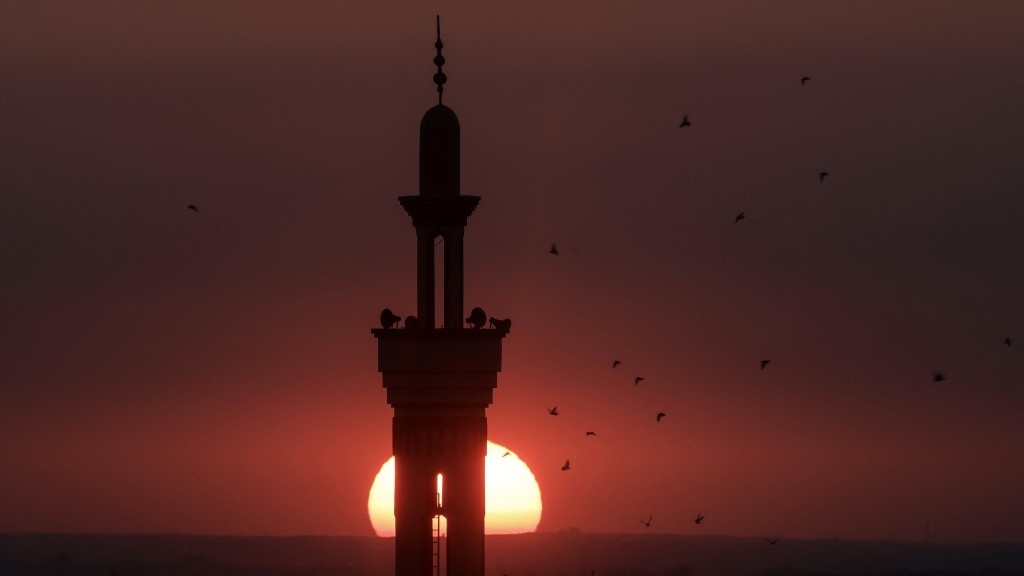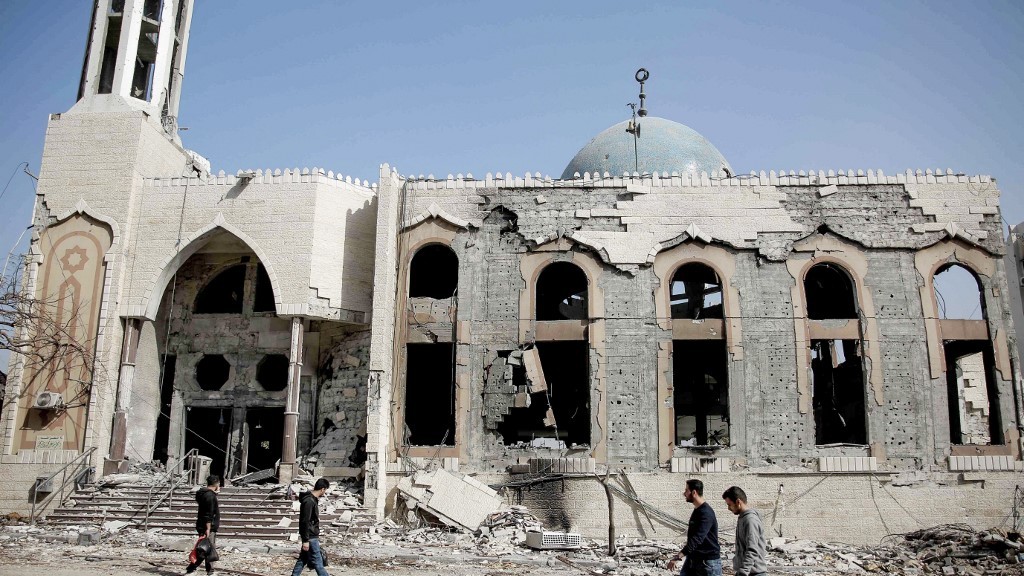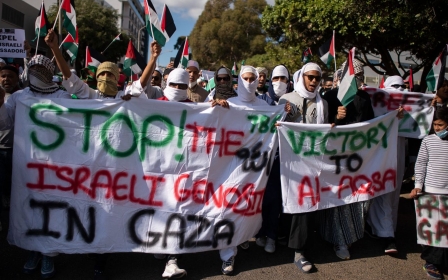Israel's war on Gaza silences its historic mosques

In a series of targeted strikes during its ongoing bombardment of Gaza, the Israeli army laid waste to dozens of mosques, including the iconic Al-Omari Mosque, renowned for its historical and archaeological significance.
The destruction has left Palestinians, both in Gaza and in the diaspora, mourning the loss of a mosque with a unique heritage.
Since 7 October, Israeli forces have completely or partially destroyed more than 300 mosques and three churches. As a consequence, the affected neighbourhoods now suffer a void during prayer times, missing the soul-stirring call to prayer that once echoed throughout the city.
"We no longer hear the call to prayer in our neighbourhood due to the complete destruction of the eastern area in the city, including the mosques," said Khaled Abu Jame, a 25-year-old resident of the southern city of Khan Younis.
"Residents here now follow the call to prayer through their phones. This war has been unlike anything we've experienced before. Mosques, a symbol of our faith, have been targeted indiscriminately."
Reflecting on the cherished memories associated with the Al-Omari Mosque, Jame emphasised its central role in daily life.
"We have beautiful memories of the mosque. We used to pray there daily, perform Ramadan and Eid prayers, read the Quran, and meet as friends," he told MEE.
'Heart of community'
Jame pointed out that mosques have been deeply woven into their lives since childhood. The call to prayer serves as their morning wake-up and the mosque stands as a guiding landmark for anyone searching for their homes, he explained.
It's more than a mere building; it represents "the heart of the community".
Jame emphasised that rebuilding their neighbourhood is closely tied to reconstructing the mosques since these places are not a secondary consideration but rather the primary foundation of their lives.
The Grand Omari Mosque was established during Caliph Omar bin al-Khattab's reign. Once a Roman temple and later a church, it became the largest mosque post-Islamic conquest. Located in Gaza's old city, near Palestine Square, it spans 4,100 sqm, with a courtyard of 1,190 sqm accommodating over 3,000 worshippers.
"I never thought this war would destroy mosques," Gaza native Saeed Labad laments. The 45-year-old is now based in Turkey, but his family resides near Al-Omari Mosque in Shujaiyya, Gaza City.
"I attended every prayer there. It's a cherished ancient place my children love. I wonder why it was destroyed; does the mosque threaten the occupiers?"
He added that dozens of other mosques, like Al-Hasayna near Gaza's port, were razed.
"These mosques hold our memories, especially during Ramadan. This war obliterated everything. I hope that Gaza will be rebuilt post-war, that I can relive these beautiful moments and revisit these places with my family."
The persistent targeting of mosques in Gaza has led many Palestinians to believe they are unsafe even during prayers. Despite the fear, a significant number refuse to cease attending mosques, expressing resilience against the attacks.
"I won't hesitate to go to the mosque. If I die there, it's a beautiful end to my life," Khaled Islim, 30, from Khan Younis, asserts.
"Mosques pose no danger. We'll rebuild them, raising the call to prayer amid the rubble. The scenes of the Quran torn and burned under debris are painful, reflecting the injustice Gaza faces."
The Ministry of Tourism and Antiquities condemned the destruction of the Omari Mosque as part of Israel's plan to erase Palestinian heritage.
It said the act violated international treaties, including the Hague Convention of 1907, the Fourth Geneva Convention of 1949 and UNESCO conventions on cultural property protection.
The ministry noted the mosque's historical roots dating back to a Byzantine monastery in the fifth century CE. It viewed the destruction as a "crime against the cultural heritage of the Palestinian people", symbolising their connection to the land.
The ministry highlighted other Israeli offences, including the destruction of archaeological sites like the old Gaza port, the Church of Porphyrius, the Jabalia Mosque, and numerous historical buildings and museums. Urging international intervention, it appealed to UNESCO and the global community to compel Israel to "cease its aggression against the Palestinian people and their heritage", reaffirming that such acts wouldn't deter "the Palestinian people's determination for freedom and independence".
This article is available in French on Middle East Eye French edition.
Middle East Eye propose une couverture et une analyse indépendantes et incomparables du Moyen-Orient, de l’Afrique du Nord et d’autres régions du monde. Pour en savoir plus sur la reprise de ce contenu et les frais qui s’appliquent, veuillez remplir ce formulaire [en anglais]. Pour en savoir plus sur MEE, cliquez ici [en anglais].






